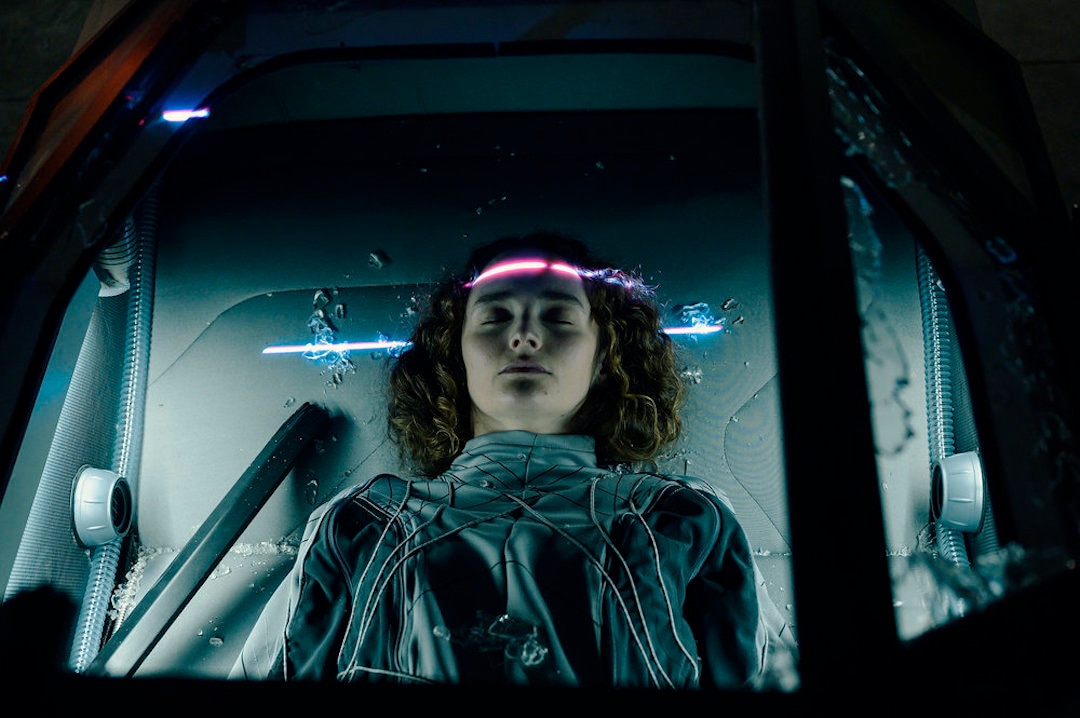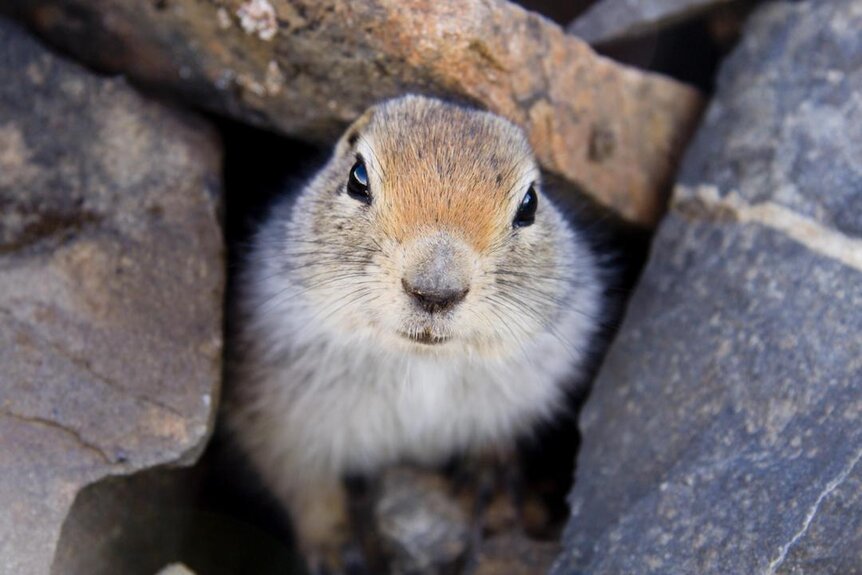Create a free profile to get unlimited access to exclusive videos, sweepstakes, and more!
Are arctic squirrels the secret to astronaut stasis pods?
First a squirrel's underground burrow, then the stars!

In Dean Devlin’s new SYFY thriller, The Ark (now streaming on Peacock!), a crew of explorers is sent on an ark ship headed for a planet around Alpha Centauri b, 4.2 light years away. It’s the kind of mission humanity dreams of — preferably under different circumstances — but at the moment, those sorts of long-duration deep space missions are out of reach. Sending a craft or a crew even to the distant places of our own solar system, let alone another star, requires staggeringly long trips. Without significant advancements in propulsion technologies, our astronauts are staring down the barrel of trips that are months or years in duration.
Expecting anyone, even specially selected and highly trained individuals, to live in a confined space away from the rest of humanity and their home planet for months or longer feels like a sure path to poor mental health at best, and a recipe for disaster at worst. Which is part of the reason scientists are interested in how other animals, particularly other mammals, take advantage of hibernation to sleep through the harsh times and long stretches.
RELATED: ‘The Ark’ stars open up about how they formed a ‘Fellowship of the Ring’ while filming SYFY series
To that end, NASA awarded funds to Dr. Kelly Drew, a professor of chemistry and biochemistry at the University of Alaska. The NASA Space Grant is awarded to researchers and students with the aim of encouraging research in areas which might benefit space exploration. When it comes to space travel, just getting through the trip itself is only the first of several challenges. Even closer to home, one of the major problems astronauts encounter on long space missions is the loss of bone and muscle tissue as a consequence of microgravity. Hibernating animals like the Arctic ground squirrel, however, have figured out how to retain bone and muscle even while they’re taking it easy for months-long stretches.
Like other hibernating animals, Arctic squirrels take to their burrows during the harshest parts of the year, to wait for sunnier skies. Unlike other hibernating animals, those periods can last most of the year. In response, Arctic squirrels have become professional nappers, hibernating for eight or nine months out of the year. Despite the extended duration and the frigid, below-freezing temperatures of their environment, Arctic squirrels manage to avoid freezing to death while keeping their bones and muscles intact.
The secret to their success is an uncanny ability to slow their metabolism to a near standstill. By the time their finished dropping into full hibernation, their brains have largely shut off, heart rate has dropped to a couple of beats a minute, and even their cells stop dividing. Then, when the snows thaw and the world awakens, Arctic squirrels flip a biological switch and bounce back without missing a beat. If we tried the same thing, we’d emerge a weakened and wobbling mess, if we crawled out of the burrow at all.
If scientists like Dr. Drew can crack the hibernation code, it might allow for the development of the types of stasis pods we see in The Ark, and open up an entirely new domain of space exploration. That said, getting astronauts to another star system isn’t Drew’s primary reason for studying hibernation.
While there are exciting applications for people traveling off-planet, figuring out how some animals are able to slow their biological processes, reduce the number of resources they need, and keep atrophy at bay has tons of potential on Earth. Scientists hope the research will lead to new medical treatments for critical care patients. Borrowing strategies from the Arctic squirrel could help to address bone and muscle atrophy diseases or create medications which could put a patient into medically induced hibernation. By slowing things down, first responders might buy time in the event of a heart attack, stroke, or severe trauma, when those early moments make all the difference.
If we ever do get to another star, we might have Arctic squirrels to thank. In the meantime, new episodes of The Ark air Wednesdays at 10 p.m. ET on SYFY, and stream on Peacock the next day!































